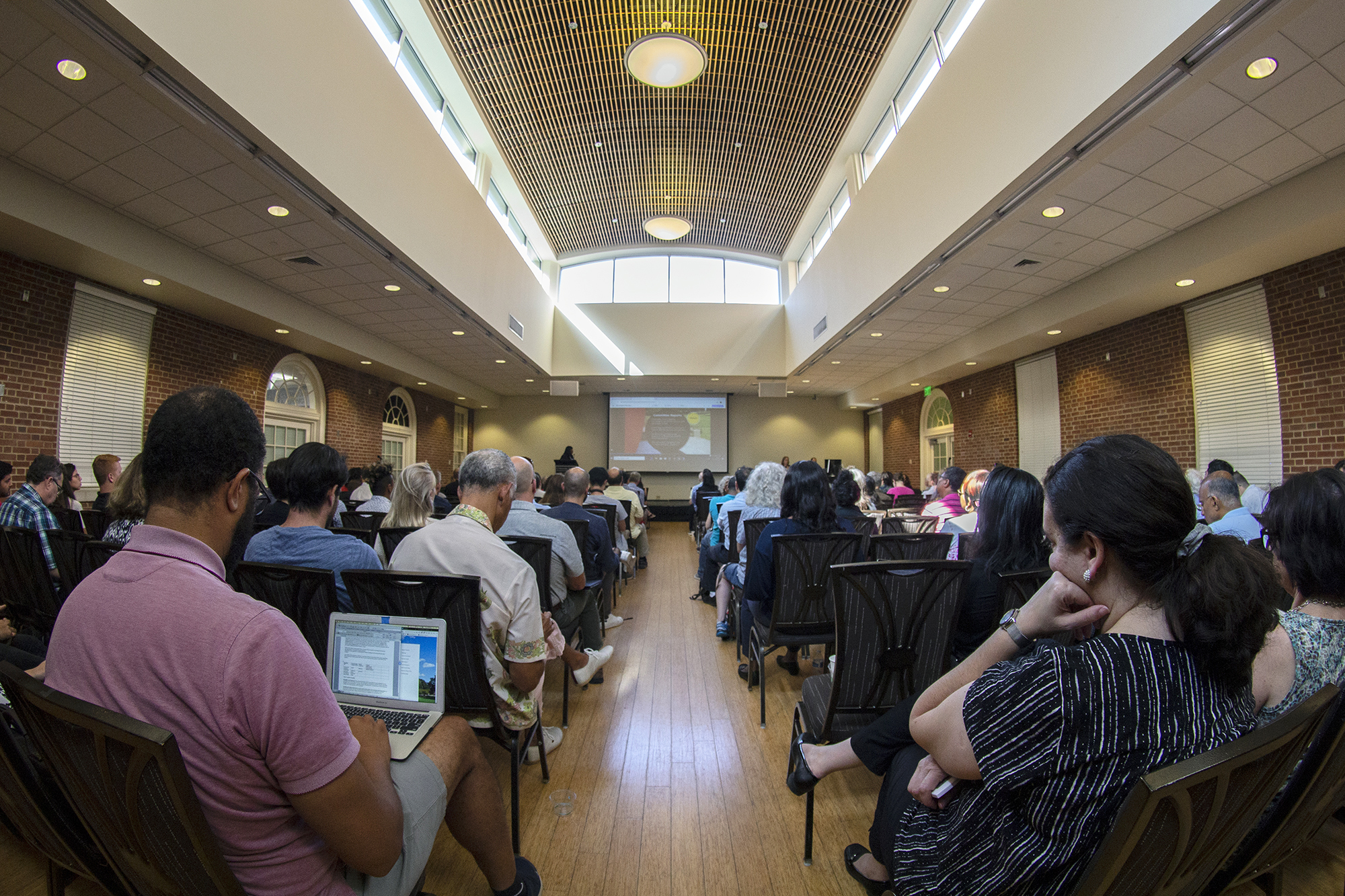As the University of Maryland Senate prepares for its last full-body meeting of 2019, committees are wrapping up a semester where they’ve reviewed an “unusually large” volume of legislation, according to the senate chair.
There are currently 30 unique pieces of legislation under committee review. While senate committees often have periods where they have no bills under review, this semester, almost every committee is charged with bills to review.
The high number this semester comes as the senate adjusts to changing federal and state legislation and as interim policies come up for review.
“They just roll in,” Senate Chairwoman Pamela Lanford said. “There’s just a confluence of a lot of things at the same time.”
The Faculty Affairs and the Elections, Representation and Governance committees are seeing the most of this workload, reviewing nine and five bills, respectively.
“Faculty Affairs is always one of our busiest committees,” senate director and executive secretary Reka Montfort said, “but this year they are really slammed.”
Benjamin Lin, a sophomore computer science major and this semester’s undergraduate representative for Faculty Affairs, said he chose to join the committee specifically for its large workload.
“I wanted to make an impact and stick my fingers into a little bit more pieces of legislation,” he said.
[Read more: UMD climate activists list demands, raise awareness for global warming at first teach-in]
The senate’s ten standing committees are the body’s backbone. After the university president or departments send proposals or policies to the senate, committee members charged with the bill study it and eventually provide a recommendation about how to proceed with the proposal.
The bills from this semester covered subjects such as criminal background checks, parental leave and organization plans.
The Programs, Courses, & Curricula Committee also saw a large amount of legislation earlier this semester, with six proposals under review. In November, university President Wallace Loh approved five of those proposals in about a week. The sixth proposal was approved much earlier, at the end of September.
Often, legislation enters the senate as state and federal legislatures make changes that require a university response. For example, in 2018, Maryland legislatures passed a law aimed to pay for public university students’ attorneys and legal fees in Title IX cases. In response to the change in state law, the full senate will be considering interim Title IX policies and procedures during their final meeting for the semester on Dec. 4.
This one statewide change created a ripple effect in the senate, as Title IX directly affects university policy. Three bills were created for the Faculty Affairs, Staff Affairs and Student Affairs committees to review the different aspects of the University of Maryland’s sexual misconduct policy.
[Read more: The federal government has opened two new probes into UMD’s Title IX process this year]
Committee members have responded to the greater workload carefully.
“Everyone’s kind of feeling it out,” Lanford said. “We try to collaborate in the administration to make sure we get to a ‘yes’ that can be approved in the senate and implemented appropriately.”
Lanford spoke to the importance of committees prioritizing quality work over pushing as many bills out of committee as possible. She said it’s especially important that they do so while welcoming Georgina Dodge, this university’s new diversity and inclusion vice president, since the senate is open to administrators bringing in their own ideas as they get acquainted with their new positions.
“The newer administration takes some time to work out,” Lanford said.
Montfort, in the meantime, has looked toward prioritizing certain components of legislation to push things out of committee. Where committee members might usually take a broader look at the policy as a whole, senate officers have asked committees to focus in on what brought the bill to committee in the first place.
“It’s a shift, so it’s been challenging to the committees,” Montfort said. “They’re used to having a kind of broader review.”
Adding to the pile of legislation, Loh has also sent committees interim policies — provisional policies meant to hold the university over while official ones are codified — for review. As interim policies are subject to renewal every few months or years, they’ve only coincidentally joined a particularly large amount of committee work.
“It’s a matter of timing,” Lanford said. “You don’t have to get something in the senate by a certain timetable.”
Ultimately, Lanford feels confident that the senate can handle this volume of legislation.
“It’s not a disaster in any way,” she said. “It’s just the facts of the job.”



